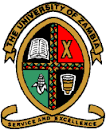Resource information
The Land tenure system in Zambia is divided in the following administrative segments: colonial period
1880-1964; immediate post independence 1964-1975, post independence period of one party political
administration 1975-1991; and the liberalization period of multiparty government of post 1991, with emphasis on the implications of the 1995 Lands Act. Generally, each period of land tenure administration provided local people relative opportunities and challenges. The aim of this study was to establish the history of, opportunities to and challenges faced by local people in Chibombo district emerging from the 1995 Lands Act. Primary data was obtained through questionnaires, interviews and observations between August 2008 and 2012 involving 60 smallholder farmers around Chibombo (39 respondents) and Mungule (21 respondents) areas of Chibombo district. Through this study it was concluded that several individuals, from within Chibombo district and elsewhere, had obtained title deeds on customary land based on the 1995 Lands Act. Dominantly, among the local people who managed to obtain title deeds to their pieces of land over 70 percent were men. Furthermore, through this policy shift new investments emerged on customary land including a cooking oil processing plant, filling stations and lodges, among others, and the local people benefitted through employment creation, improvements to their houses, purchase of solar panels, radios, cell phones and others. On the contrary, others reduced their land hectarage through selling of parts of their land for money, some relocated from their previous residence and evidence of land boundary conflicts was recorded. Therefore, a mixture of opportunities and challenges emerged from the introduction of the 1995 Lands Act.

